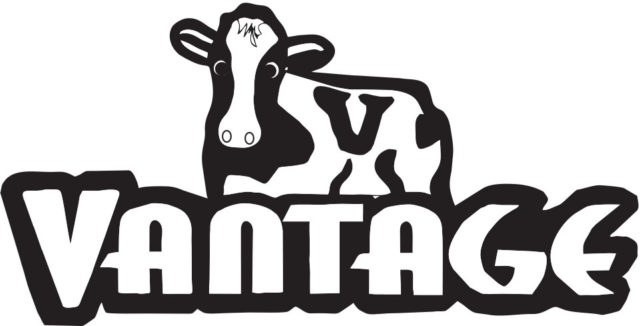Sometimes an ag news item comes across my notification feed and lingers in the back of my head. This is not intended to be an ag news-brief summary. It’s the “other” ag news – the ridiculous, the impossible, the you’ve-got-to-be-kidding-me news.
Item No. 1: Driverless tractors roll off the assembly line
From: Foxconn press release
What it says: Hon Hai Technology Group (Foxconn) today announced the start of production in Ohio of the Monarch MK-V, the first fully electric, driver-optional, smart tractor, with the initial five tractors rolling off the production line for delivery to customers.
Setting a new standard for farm safety – a top priority for Foxconn and Monarch Tractor – the MK-V also includes technology that will help prevent farm-related injuries whether the tractor is being driven or performing driverless tasks. Each MK-V is produced with collision prevention, human detection and power take-off (PTO) protection. The tractor will stop moving if it detects a human within 6 feet of the tractor, and the PTO will automatically shut off if the system detects a person within 1 foot of the PTO.

Courtesy photo.
Just my opinion
I drive a late-model Subaru that has so many safety bells, whistles and buttons that I absolutely hate. An alarm explodes every time I: change lanes without a blinker, get too close to a lane marker, don’t buckle the passenger seatbelt, back up or when any vehicle passes me on either side or when any vehicle ahead of me slows down. Do you know what it feels like? Like bowling in an alley with gutter guards. Like riding a bicycle with training wheels. I’m sorry, but I hate it. The bigger question is, do all the alarms make it safer? I’m not gonna lie – I think it adds to my road rage. So any benefit from safety features might actually be negated.
Item No. 2: Cloned dairy cows
From: Dairy Global
What it says: In early February 2023, Chinese state media reported that a group of Chinese scientists had successfully cloned three "super cows" that can produce a remarkably high amount of milk. The three calves born in the Ningxia region in December and January are copies of highly productive cows from the Holstein Friesian breed, said to be capable of producing 18 tons of milk per year, or 100 tons of milk in their lifetimes.
Jin Yaping, one of the leading scientists, told the state-owned publication Global Times that the birth of the super cows was a breakthrough allowing China to preserve the very best cows in an economically feasible way. He also expressed confidence that the cloning technology will help China mitigate its dependence on foreign breeds.
The researchers already used CRISPR/Cas gene-editing technology to knock out PAEP and LOC100848610, two genes representing beta-lactoglobulin in the bovine genome, and to obtain a line of genetically edited embryonic fibroblasts. The idea was to make milk hypoallergenic, but there is much more this approach can offer. The scientists explained that the gene-editing technology could have a broad application, as changing the genome could help boost yields or make animals less prone to heat stress.
Just my opinion
Technology is way ahead of public acceptance in this arena. Remember how we balked at giving up the flip phone? But when texting became a thing, we had to do something, and so were forced into a device with a mini keyboard. Then we thought we’d never upgrade (too expensive, and really, how many bells and whistles did we need?) until we discovered GPS and MapQuest were a possibility – forget the paper unfoldable-refoldable road maps (a sure-fire misnomer) – that was the trigger point for all of us. We dived in and have never looked back. But that was a 10-15 year timeline. It’ll be interesting to see what the timeline for milk from cloned cows will be, especially in the current trend of organics, “naturals,” non-GMO and “don’t touch my food” (grow it or produce it, just don’t touch it) attitudes.
Item No. 3: Poultry farming draws lawsuit
From: Civil Eats
What it says: Lawyers at the Environmental Justice Clinic at Vermont Law and Graduate School filed a civil rights complaint with the U.S. Environmental Protection Agency (EPA) on behalf of residents of three counties in rural North Carolina. The complaint includes a number of residents’ detailed descriptions of the ways that chicken farms are affecting their lives. For instance, resident Henry Brewer described living next to mountains of chicken litter – a mixture of feces, urine, sawdust and other particles – that industrial-scale chicken farms remove from barns and spread on fields.
Just my opinion
Really nothing is new here, except a presidential administration’s executive order that flings around the phrase “environmental justice” as its sword to undercut agriculture (and by extension national security). Spreading manure, either by the government or agriculture, is smelly.







